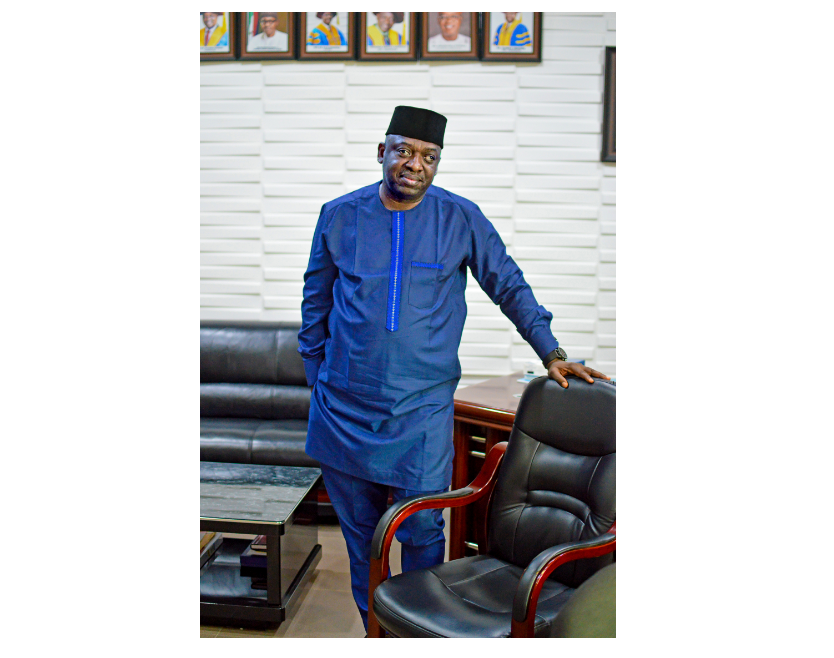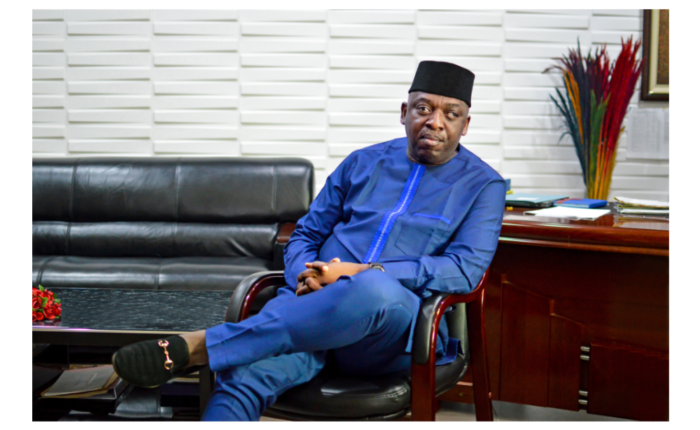In a chat with Kehinde Adio of the Nigerian Tribune, Professor Joshua Ogunwole sheds light on the ongoing transformation and restructuring efforts in Bowen University, the new technology-driven strategy on security and education, and other innovative agenda to move the institution forward. Here are the excerpts:
Tell us about the restructuring going on at Bowen University?
Bowen is passing through a restructuring phase right now and the restructuring is beginning to have a face. For instance, we are looking at the university that will be purely technology-driven. Currently, we are building a 288-bed hostel, which will be the first smart hostel ever to exist in any Nigerian university. The new hostel will be digitally controlled. We are also going to create an environment that talks and speaks technology. The more of technology this generation of students see, the more you can exploit their mindset so they can think in that path way. Recently, our students came together with some university’s staff to address the issue of improving on the security situation on campus. What they did was to build a security application on a cell phone to monitor the movement of people on the campus.
In other area of infrastructure, we are doing a pedagogy swift from the usual way lectures are being delivered. We cannot teach this generation the same way we were taught. This is a generation that is digital savvy. We must understand that teaching and learning is now digital-based. For instance, when we were younger, we were just revolving around our parents. The way we learnt then was though story-telling, which graduated to reading story books and hard copy books. We don’t expect this generation to go through the same old method of trainings. The generation has moved from such learning procedure.
How much of attention are you putting into improving teaching, research and community service in the university?
Bowen will no longer engage students in a traditional teaching method of facing the lecturer and the board; rather, we are having a new classroom sitting arrangement that will promote group learning. This is part of our innovation agenda to move the university forward. In addition, we want to make our indigenous knowledge relevant in the science world by adding value to them; this is the new direction for research work. We want to develop our indigenous knowledge for nation building. In China, indigenous knowledge development is prioritised; some foreigners even come to Nigeria to spy our indigenous knowledge and profiteer it. We want to identify all our indigenous pieces of knowledge and covert them through science.
For instance, in Africa, we use hens to identify edible mushrooms. This could be very alien to the western world. We have many of this type of knowledge that we can invest in and develop to distinguish ourselves as an independent country that adds value to the global world. Nigeria has numerous indigenous resources. We are breaking this into chains and subjects and we are putting sizeable money into research coverage, starting next academic year in September.
On community service efforts, we are very responsive to our immediate communities. In the first instance, we offer scholarship to indigent but brilliant students from the neighboring communities. We have engaged in roads grading in those communities.
Also, the university engaged the students in organising free Unified Tertiary Matriculation Examination (UTME) and SSCE coaching for the senior secondary students in the communities to prepare them for the examinations. The university has a host of other community service programmes even in the area of animal husbandry development.
How does the university handle its entrepreneurship education?
Aside the fact that we engage our students in vocational training, our entrepreneurship education is based on problem-solving. Each student must be solution provider, and that is the mindset we are building in them. We encourage them to broaden their horizon, so as to enhance their thinking skills to solve emerging problems.
What format does it take?
Aside the vocational training in all sorts of trades that we engage our students in, our entrepreneurship education is practical-based and focuses on problem-solving skills. We believe a graduate must be solution-driven; this is the mind-set we are building in our students. In the light of this, we have introduced our students to knowledge broadening business books, which expand their horizon in all sense of innovations. They study, discuss and share the business ideas information in the books through the WhatsApp and other group study platforms.
In a nutshell, our core value, which are; godliness, entrepreneurship, excellence, innovation and social responsibility form the basis of university education in Bowen University. Our students are groomed in their fields to be self-sufficient, productive and relevant to their immediate environment and the global level at large. We train our students according to industry needs and to be able to fit into any of the industries.
What can you say about graduates’ employability in Nigeria?
I do not believe that there are no jobs in Nigeria. The problem is that Nigerian universities are training students for jobs that are no longer available. This is what we are trying to avoid by making Bowen University a technology-driven institution.
How do you think the Nigerian education sector can be improved upon?
Well, we need a strong-willed personality to manage the education sector of this country. Our entire education system, including the curriculum, from the primary level should be reviewed. Education in Nigeria must be learning-driven and technology-focused. We are dealing with a generation that is digital-based; therefore, our teachers must be retrained to be able to address the challenges of this generation.

Another problem is that Nigeria does not have schools for gifted children. There are no measures in place to develop children who exhibit high level of intelligence. For instance, if I have a child who is very good at Mathematics, I should be able to groom him in such a way that he would excel more in the subject. We do not have what it takes to do this, and that is the reason we must go back to the drawing board to produce tomorrow innovators for the country, even right from the primary school level.
What are your expectations from parents concerning the restructuring and transformation going on in the university?
I will want parents to be patient with the authorities of the university and give us free hand to take good care of their children and to do the needful concerning skill development and character-building in their respective chosen careers.
Parents cannot dictate to the university, but they can only advise as stakeholders. The management will always respect parents’ positive contributions to the development of the institution, but they should not go to the extent of forcing their ideas on the university. Also, we expect parents to understand that we are career parents to these children and will give them the best trainings that would make them self-sufficient and productive with godly character.
These children are the brand ambassadors of the university in the labour market, both at local and international levels. Already, our graduates are doing very well at the global market, thereby projecting the good image of the university.
Through our graduates, we have series of goodwill messages coming from different universities abroad, requesting for our collaboration. So, the university cannot afford to give the students anything less than what is obtainable in any standard universities abroad, be it in learning and character. Under our repositioning process, we are in partnership with industries to identify with current market needs, in order to train our students towards that direction. As a matter of fact, Bowen University is producing graduates for global competitiveness and relevance and not only for Nigerian market.
It is believed that the number of qualified candidates outweighs the number of spaces available in the universities. How can this be resolved?
Yes. Nigeria has more qualified candidates contesting for the limited numbers of available spaces universities in the country. However, the answer lies in the establishment of more private universities in the country. Right now, we have nothing less than 300 applications with the National Universities Commission (NUC) seeking approval.
However, to address this university admission challenges, government must be ready to create an enabling environment for private university to thrive. If government would make registration fee and other requirements in terms of finance more available to proprietors of private institutions, it would go a long way to boost their development.
It will not be out of place for government to extend the Tertiary Education Trust Fund (TETFund) to private universities and give scholarships or loans to students who desire to study in private universities. There is academic stability in private universities.
The issue of drug abuse among Nigerian youths, especially in tertiary institutions, is becoming embarrassing. What is your take on this?
This is a faith-based university, where character and learning is strictly emphasised. We have zero tolerance for any form of misbehaviour. There is no room for miscreants in Bowen University. We keep our eyes on everyone on the campus. Once a student is caught in an act of indiscipline, we will invite the parents of such to decide his or her fate. I want to use this medium to appeal to Nigerian youths to desist from taking all these dangerous drugs. At Bowen, we play the role of career parents to our students. So, we shall not condone any form of misconduct in our students. Once you are on our campus, we take responsibility for your welfare. Every Bowen student must graduate with knowledge and character because this is the only way they can be useful to themselves, their parents and the society at large.

